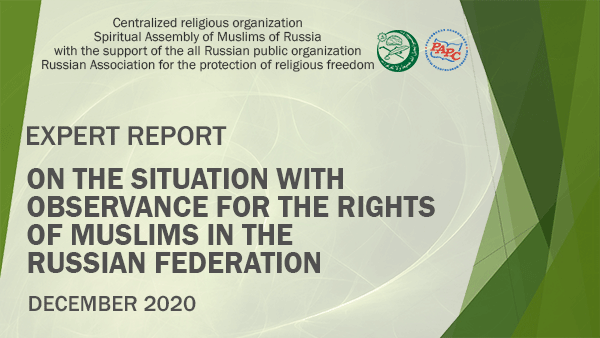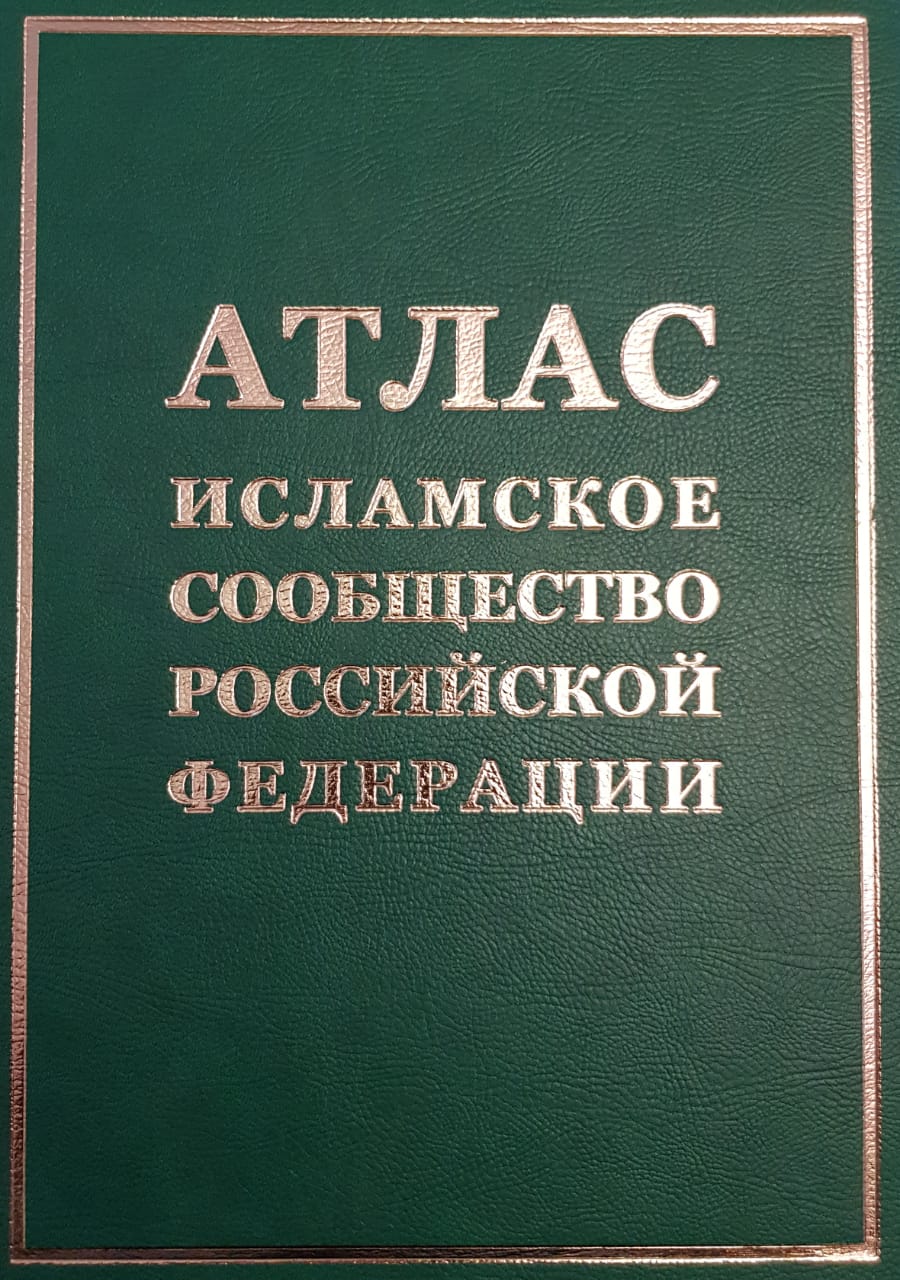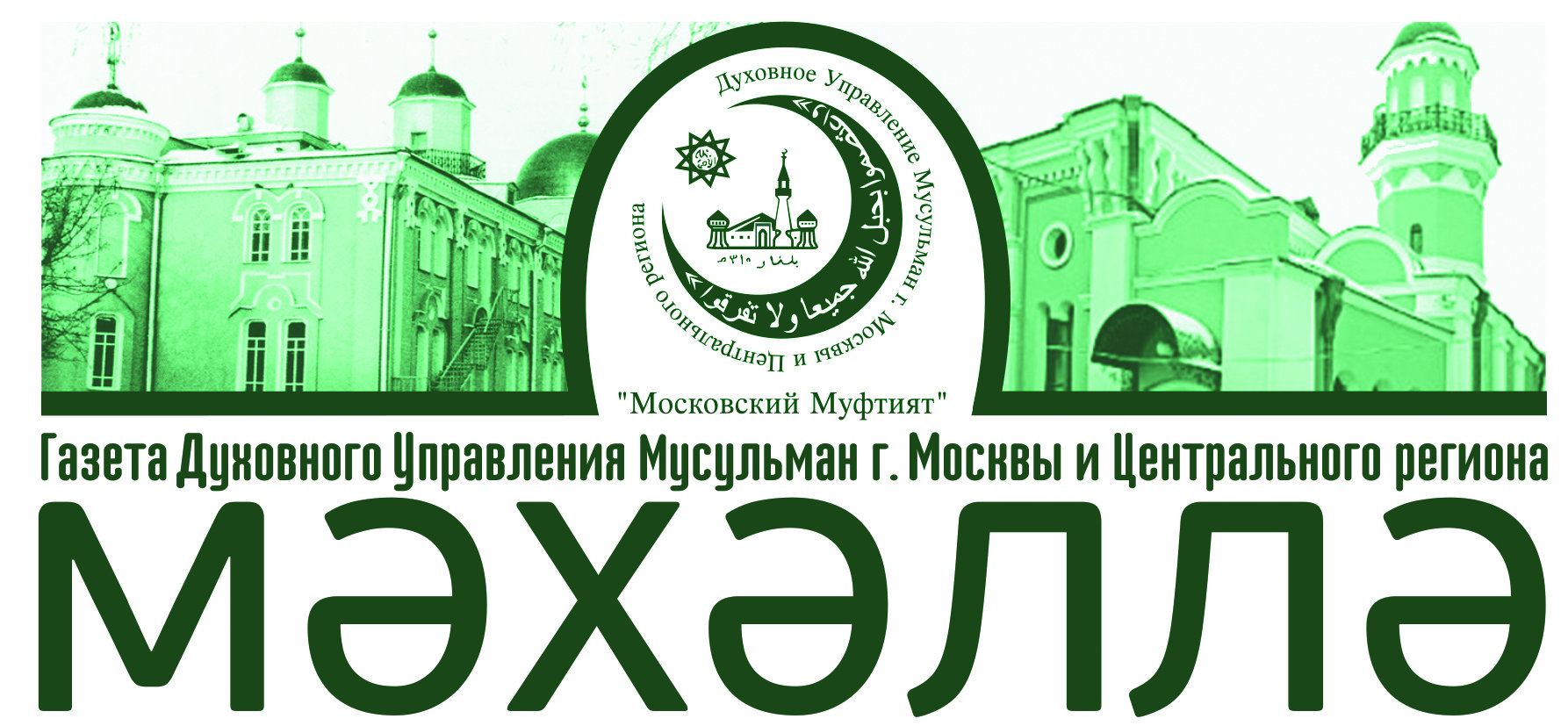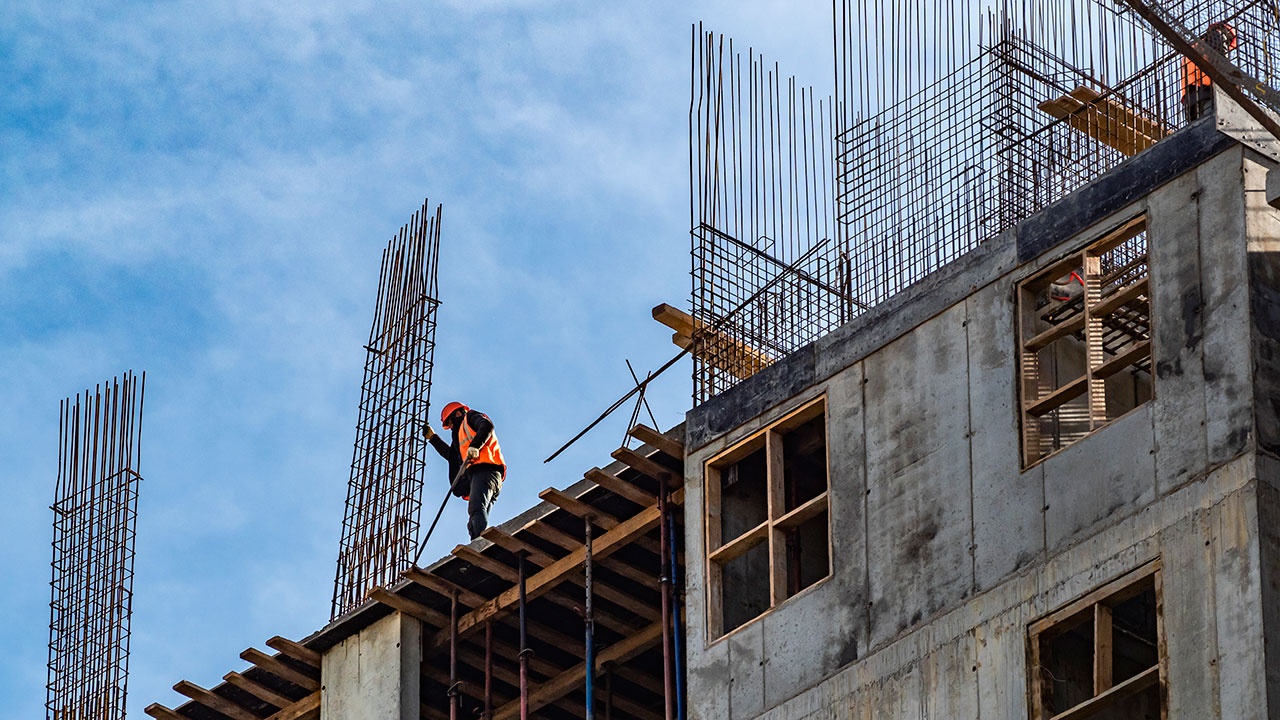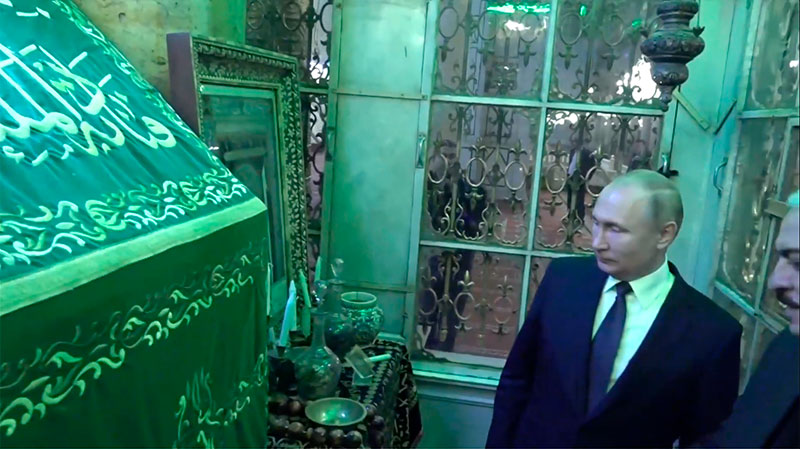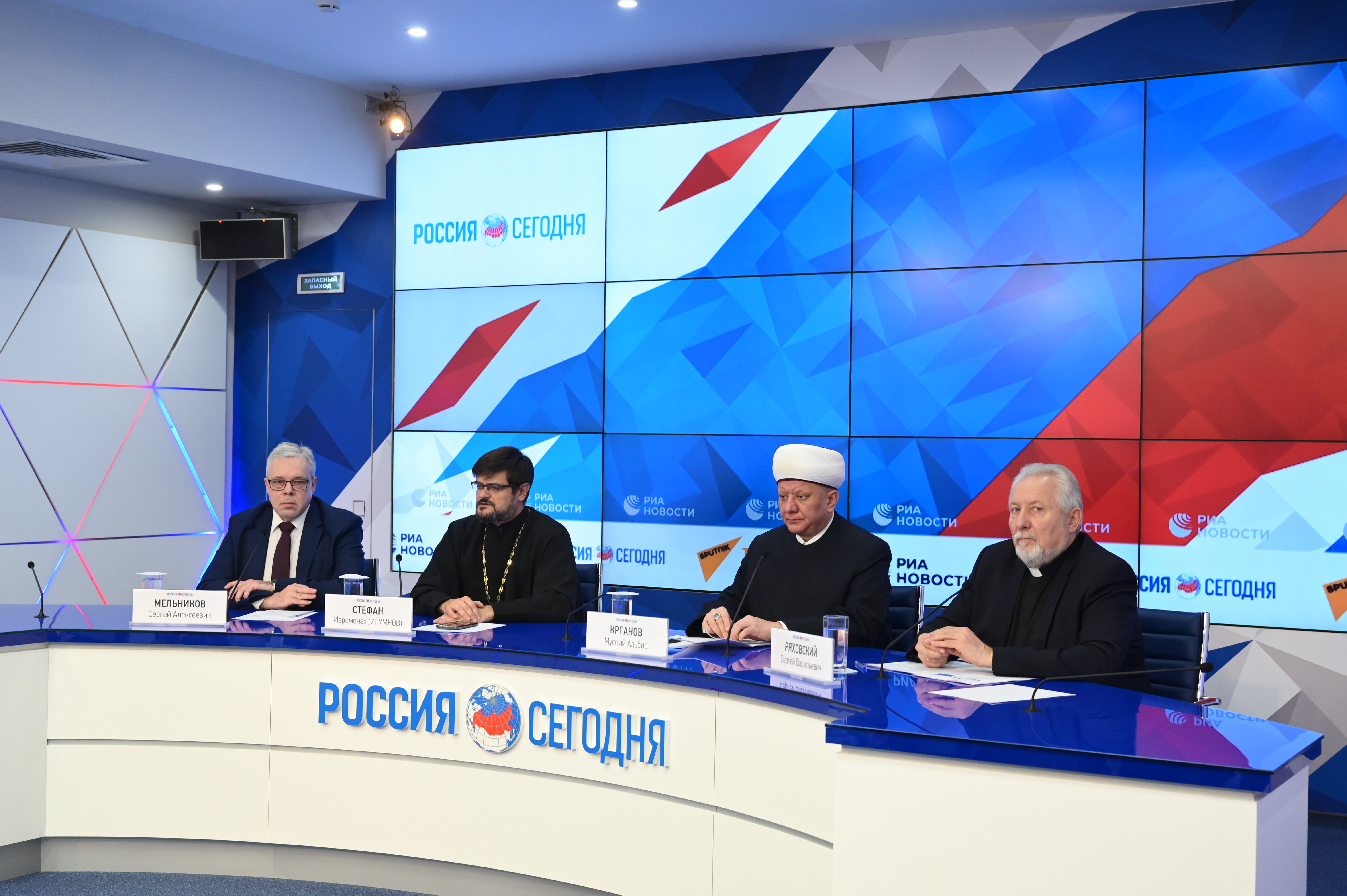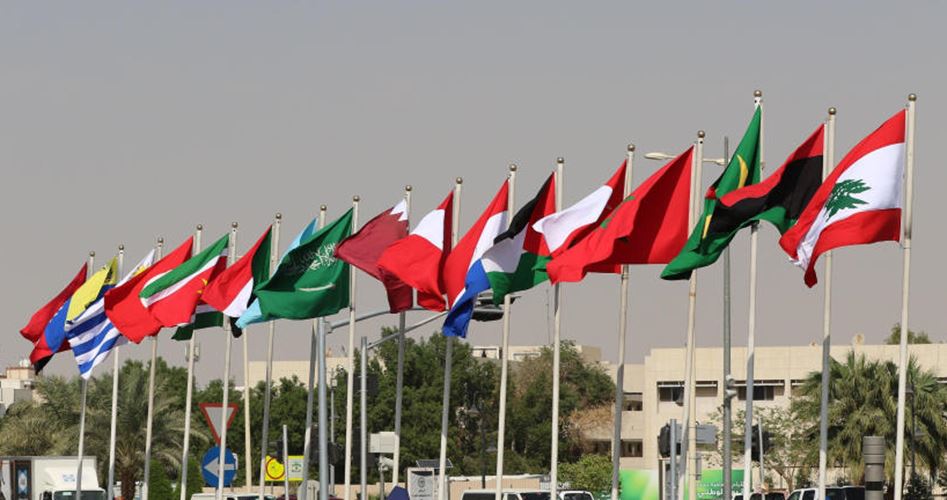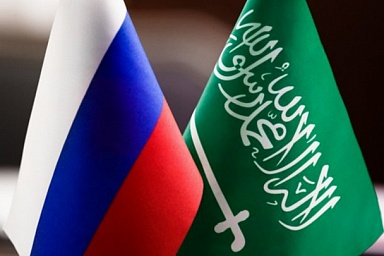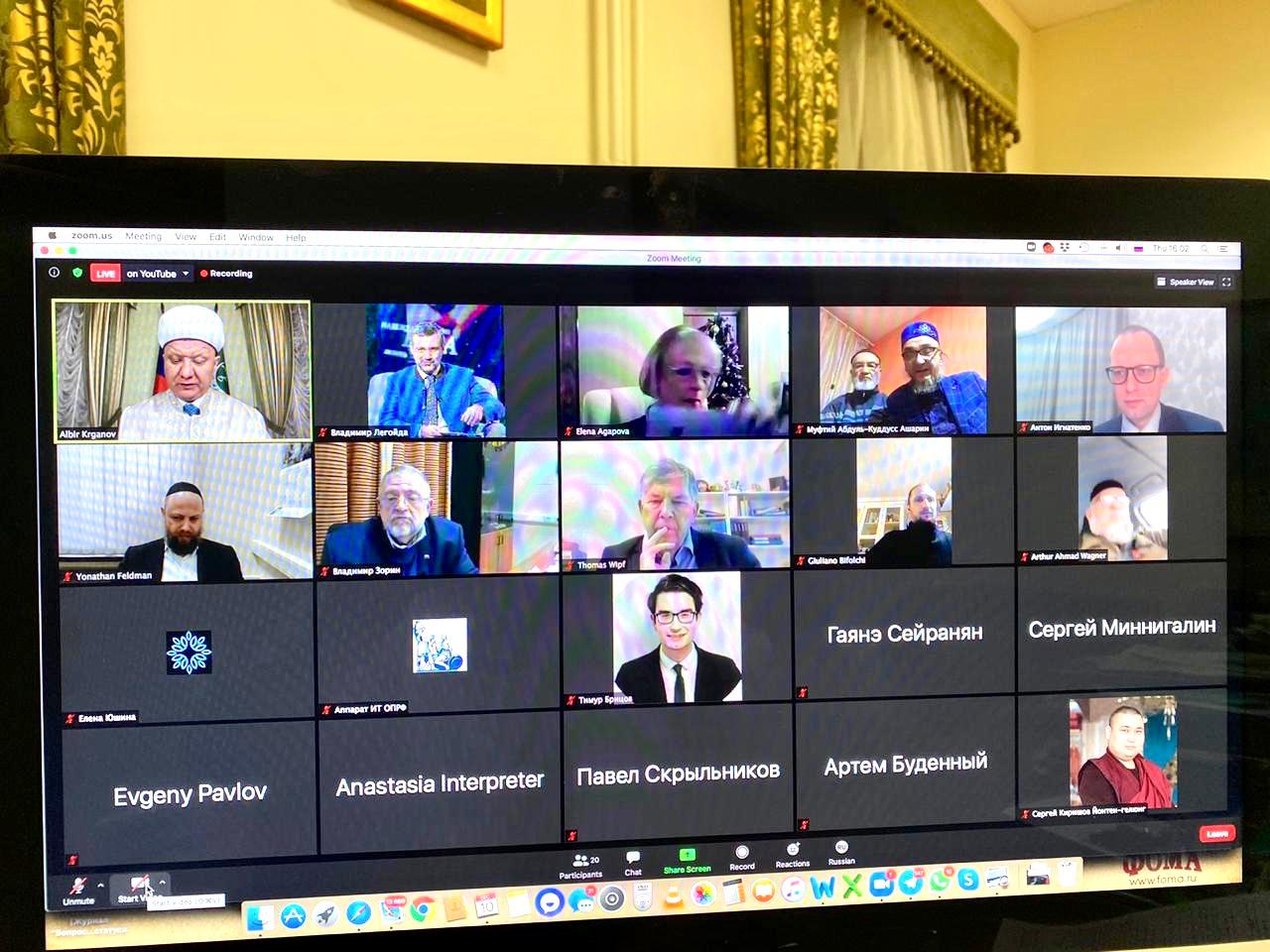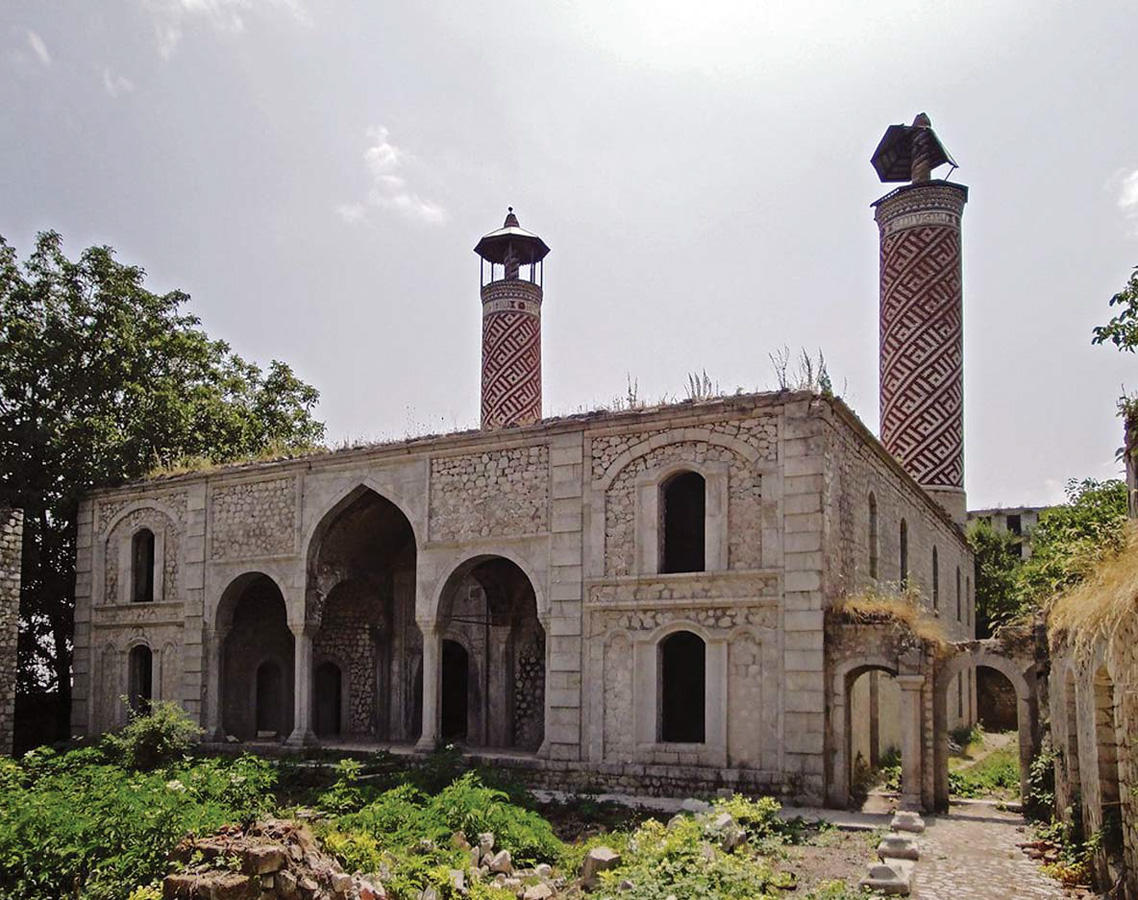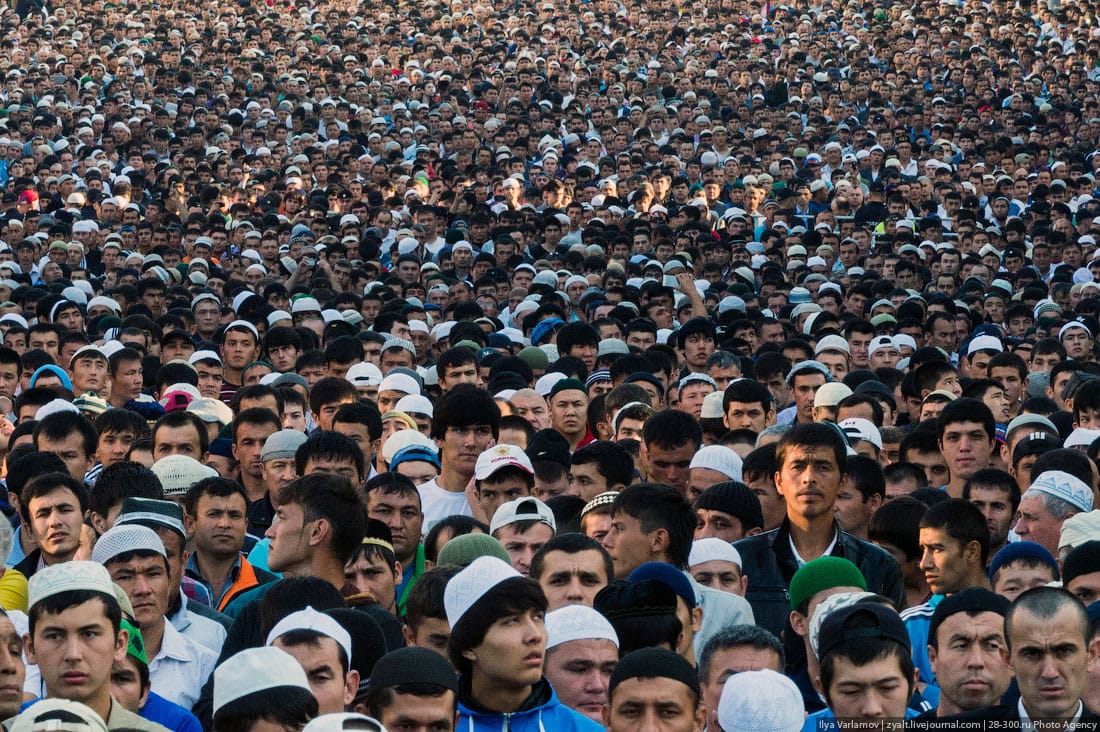January 18th, 2021
Russian President Vladimir Putin ordered the Government to consider the issue of organizing a simplified procedure for attracting labor migrants to construction sites until March 1, 2021. The list of instructions following the meeting of the State Council and the Presidential Council for Strategic Development and National Projects which was held last December is published on the Kremlin website. During this meeting, Deputy Prime Minister Marat Khusnullin said that the construction sites witness a lack of workers, including foreigners. President of the Tatarstan Republic Rustam Minnikhanov also complained about the shortage of workers at construction sites and asked the President to order the government to organize a targeted import of migrants to construction facilities.
“Taking into account earlier instructions given to the Government of the Russian Federation and the Commission of the State Council of the Russian Federation in the direction of "Construction, Housing and Utilities, Urban Environment", it is obligatory to consider the issue of simplified procedure for involvement of workers who are not citizens of the Russian Federation in construction and installation works. In order to prevent the spread of coronavirus infection, all sanitary and epidemiological requirements must be met.», the document says.
Previously it was reported that the Ministry of Construction of the Russian Federation proposes to simplify the conditions of entry to Russia for migrant workers. According to the ministry, the construction sector of the Russian Federation is experiencing a lack of labour force. One of the conditions to allow foreign labor to enter the country must be a negative result of test for COVID-19 received no earlier than three days before the date of entry.
January 9th 2021
Russian President Vladimir Putin was admired how carefully Muslims preserve Christian shrines, citing the example of the Umayyad Mosque in the Syrian capital Damascus where the relics of John the Baptist (prophet Yahya) are kept. The Russian leader noted that during his visit to the Orthodox Church in Damascus last year he managed to visit the Umayyad Mosque to see the relics of John the Baptist.
«It was quite unexpected for me to find out that the relics of John the Baptist are carefully preserved in the mosque and greatly revered in the Islamic world», said Putin in an interview for the film «No Room for Error. The Christmas Visit to Damascus» which was aired on the «Russia 1» TV Channel.
The President pointed out the close ties between Islam and Christianity. Both world religions are based on common moral, ethical and humanitarian values. Many Muslims, like Christians, contribute great respect to both Jesus Christ and John the Baptist. In this regard, Vladimir Putin praised the representatives of Islam for preserving Christian shrines in Syria.
December 22nd The head of the Spiritual Assembly of Muslims of Russia Mufti Albir Hazrat Krganov participated in the round table conference devoted to discussing the rights of Christians in Africa held on December 22nd in Moscow.
Speakers pointed out that Christians in many African countries have been recently subjected to racism and persecution because of their religion and in some areas there has been a real genocide against the Christian population. This is what exactly causes great concern among the international religious community.
The participants condemned the activities of extremist organizations and groups such as Boko Haram, Al-Shabaab and Fulani tribe, noting that all they commit their crimes based on religious and ethnic intolerance, ignoring and violating human rights and basic freedoms such as the right to life and freedom of religion.
The head of the Spiritual Assembly of Muslims of Russia Mufti Albir Hazrart Krganov stated that all the blatant crimes against the Christian population that we can see today in many African states are related to attempts to rewrite history and erase from people's memory the friendship between Muslims and other religions that has been existing for centuries. In this regard he mentioned the Migration to Abyssinia, where Negus of Abyssinia (Ethiopia), which was a Christian country, welcomed Muslims and provided them with safe living conditions. This fact demonstrates that Muslims and Christians established their relations on the basis of mutual respect and trust.
The Mufti also added that it is necessary to enhance inter-religious cultural and civilizational dialogue in order to overcome religious ignorance as well as make joint efforts to fight terrorism.
During the discussion, some speakers stressed the need to take effective measures to establish mechanisms to protect Christians in Africa. For example, the head of the Russian Association for the Defense of Religious Freedom Sergey Melnikov proposed the United Nations to ratify a special convention aimed at protecting the rights of religious believers all around the world.
In conclusion, the participants expressed their hope for a further cooperation on this issue.
December 22 Russian President Vladimir Putin praised existing relations between Russia on one hand and Arab and Islamic countries on the other hand during his annual press conference held on December 17th, describing them to be stable and strong.
"We have very stable and long-term relations dating back to centuries and today they even tend to expand. During the Soviet period those particular ties were mostly connected with certain ideological considerations. Nowadays the scope and geography of our cooperation with the Arab and Islamic world has become much wider and we appreciate it very much. I expect us to continue developing these relations", stated Putin.
Russian leader pointed out that the Russian Direct Investment Fund (RDIF) cooperates with almost all sovereign investment funds in the world, and its relations with some Arab investment funds are considered to be “unique due to the remarkable development and great expansion they have recently seen".
Putin added that partners of the Russian Federation in the Arab world trust RDIF activity to the extent that they have decided to participate in financing some ambitious projects.
Russian journalist Evgenia Avramenko praised Vladimir Putin for his help in releasing sociologist Maxim Shogali and his interpreter Samer Swivan who were held in Libyan prison for more than one year: “We achieved this due to our cooperation with our friends in the Arab world".
Putin also stressed the role of the President of the Chechen Republic Ramzan Kadyrov in strengthening bilateral relations, saying that “Ramzan Kadyrov along with other regional leaders makes a great contribution regarding rapprochement with Arab countries."
December 18th
The Arabic language is a pillar of the cultural diversity of humanity. It is one of the most widely spoken languages in the world, used daily by more than 420 million people. World Arabic Language Day is celebrated every year on December 18th since 2012. This date coincides with the day in 1973 when the General Assembly of the United Nations adopted Arabic as the sixth official language of the Organization.
The native speakers of Arabic basically live in the region called the Arab world, as well as in many neighboring countries, including Turkey, Chad, Mali, Senegal, and Eritrea.
In the diversity of its forms, classic or dialectal, from oral expression to poetic calligraphy, the Arabic language has given rise to a fascinating aesthetic, in fields as varied as architecture, poetry, philosophy and song. It gives access to an incredible variety of identities and beliefs and its history reveals the richness of its links with other languages. Arabic has played a catalytic role in knowledge, promoting the dissemination of Greek and Roman sciences and philosophies to Renaissance Europe. It has enabled a dialogue of cultures along the silk roads, from the coast of India to the Horn of Africa.
The Arabic language is extremely important for Muslims all over the world as the language of the fundamental sources of Islamic law: the Holy Quran and the prophetic Hadith. It is widely acknowledged that not a single worship in Islam can be performed without knowing single surahs or ayahs from the Holy Quran. Arabic is also one of the main ritual languages for many Christians living in Arab states.
Today, Arabic is the language of politics, science and literature. The direct or indirect influence of the Arabic language can be traced in many other languages of the Islamic world, such as Turkish, Persian, Kurdish, Urdu, Malaysian, Indonesian, and Albanian, as well as in several African languages such as Hausa and Swahili, and European ones, in particular in Spanish, Portuguese, Maltese and Sicilian.
The celebration World Arabic Language Day usually takes the form of music concerts, literary readings, competitions, cultural events, lectures, art exhibitions, performances and exhibitions of folk art.
December 17th
Russian President Vladimir Putin commented on the publishing of the cartoons of the Prophet Muhammad which caused the outbreak of the crisis between France and the Arab and Islamic world, stating that it is not permitted to insult the feelings of believers.
"Where another person's freedom begins, your freedom ends. This is a postulate, a common one, and those who act thoughtlessly, insulting the rights of believers, their feelings, they should always remember that this will have some kind of backlash," the head of state said on Thursday at his annual big press conference. "On the other hand, this backlash should not be aggressive", noticed Vladimir Putin.
The president reminded that there was no hint of aggression in all world religions. He emphasized that the reaction to the trampling of someone's rights, including the feelings of believers, should not be aimed at the deprivation of human life, because this, in principle, contradicts the very spirit of any world religion. "God gave life and only God can take it away. That is what no one should forget", Putin added.
The crisis mentioned above started after the Frenchmagazine "Charlie Hebdo" published a series of cartoons of the Prophet Muhammad that was considered to be an attempt to insult the feelings of Muslims all over the world, especially after the France government justified this action as protecting freedom of expression and allowed to publish these cartoons on a large scale. Afterwards a young Muslim killed a French teacher who demonstrated them during the lesson on free speech given in one school in Paris suburb.
In this context the Islamic world started a large campaign aimed at the boycott of French commodities and products, in order to express its anger with the policy of Paris, although the French government refused to apologize on the issue of publishing the offensive cartoons.
December 10, 2020
Since the beginning of the year, Russian exports of agricultural products to Saudi Arabia have doubled - almost 3 million tons of agricultural products and food worth $ 637 million have been shipped to the Kingdom.
Saudi Arabia is considered to be the largest importer of Russian barley as its supplies have increased to $ 484 million this year, which is 2.3 times more than in the same period last year. The export of confectionery products also showed positive dynamics and increased by 19%. In addition, the export of domestic beef increased from 325 thousand dollars in 2019 to 14.6 million dollars in 2020.
A significant step for the development of export supplies was the decision of the Saudi Grains Organization (SAGO) to ease the requirements for wheat imported from Russia. For the last several years the Russian Federation has been working in this direction, including negotiations at the level of the heads of the agriculture departments of the two countries. Since the start of shipments in April, Saudi Arabia has purchased over 180,000 tons of Russian wheat worth $ 39.3 million. In addition, this year
Russia started exporting coffee extract, sorghum, and chicken eggs to the Kingdom.
The most promising areas for further cooperation between the countries is the export of grain and leguminous crops, poultry, mutton, beef and confectionery.
December 10th
On December 10th, 2020, the Commission for the Harmonisation of Interethnic and Interreligious Relations of the Civic Chamber of the Russian Federation in conjunction with the Spiritual Assembly of Muslims of Russia organised the online conference “Modeling interethnic and interreligious relations in a secular state” attended by representatives of the scientific and expert community, members of the Public chamber of the Russian Federation, religious and public figures from Russia, the United States, the United Arab Emirates, Italy, Czech Republic, Europe, and Asia.
The mufti Albir R. Krganov, chairman of the Spiritual Assembly of Muslims of Russia, deputy head of the Commission on Harmonisation of Interethnic and Interreligious Relations of the Civic Chamber of the Russian Federation and head of the Working Group on Counteraction to Pseudoreligious Extremism of the Counterterrorism Coordination Council, chaired the conference attended by:
• Alexander Yakovlevich Shkolnik, Deputy Secretary of the Public chamber of the Russian Federation, Director of The Central Museum of the great Patriotic war of 1941-1945;
• Vladimir Yuryevich Zorin, Chairman Of the Commission on harmonization of interethnic and interreligious relations, addressed the conference participants with greetings;
• Thomas Wipf, President of the European Council of religious leaders – Religions for Peace;
• Mohamed Abbas Almutazim, President of the Union of Muslims of the Czech Republic;
• Dr Mohammed Al-Bishari, Secretary-General of the World Council of Muslim Communities (WCC);
• Imam Mohammad Bashar Arafat, President of the Council for Islamic Affairs, Maryland (USA), Founder of the Foundation for the Exchange of Civilizations and Cooperation;
• Giuliano Bifolchi, director of ASRIE Analytica, OSINT analyst, and academic researcher on Islam, security, and counter-terrorism
• Ahmad (Arthur) Wagner, Chairman of the IDEL Analytical centre in Berlin;
• Vladimir Romanovich Legoida, Chairman of the Synodal Department of the Russian Orthodox Church for relations between the Church and society and the media;
• Elena Aleksandrovna Agapova, Deputy Chairman of the Imperial Orthodox Palestinian society;
• Jonathan Feldman, Head of religious programs of the Federation of Jewish communities of Russia;
• Sergey Kirishov, Member of the Public chamber of the Republic of Kalmykia, Vice-President of the Kalmyk Buddhist Association;
• Oleg Goncharov, First Deputy Chairman of the Euro-Asian division of the General conference of the Adventist Christian Church;
• Anton Ignatenko, Director Of the Institute of religion and politics;
• Sergey Ryakhovsky, Chairman of the Pentecostal Russian United Union of Evangelical Christians, member of The Commission on harmonization of interethnic and interreligious relations;
• Abdul-Kuddus Asharin, Chairman of the Spiritual administration of Muslims of the Sverdlovsk region.
The conference was devoted to the problems of growing inter-ethnic and inter-religious tensions in the world in the light of recent terrorist attacks in European countries, studying international experience in coordinating the interaction of the state with religious and ethnic organizations, civil society institutions in order to counter the spread of terrorism and extremism.
The participants stressed their interests and experience in moderating interreligious and interethnic relations in their countries and they agreed that in the contemporary era is difficult to ensure a balance of interests of representatives of different peoples and religions, but this is a necessary condition for the prosperity of modern secular states. In fact, many countries today are facing the problem of religious extremism on national and religious grounds.
In conclusion, mufti Albir R. Krganov pointed out that the international community and all the people in general must not respond to these terrible provocations and all together we should find the strength to stop it. "Emotional and politicized decisions can lead to huge mistakes and more serious problems, which, perhaps, the organizers of these terrorist attacks expect”, said Albir Hazrat Krganov.
https://dsmr.ru/en/?start=70#sigProIdb2d6ae38b4
December 4th
Spokesperson of Russian Foreign Ministry Maria Zakharova stated at a briefing last Thursday that Russia hopes that UNESCO experts will soon arrive in Nagorno-Karabakh region to assess the preservation of Christian and Muslim holy places.
"We hope that the mission that was prepared in cooperation with the Armenian and Azerbaijani sides in conjunction with several international NGOs , partners of UNESCO in the field of protection and protection of monuments, will soon be able to arrive in the region and give an adequate assessment of the situation," said Zakharova.
The spokesperson also stressed that Moscow supports the intention of UNESCO Director-General Audrey Azoulay to send the experts to Nagorno-Karabakh which was confirmed during a telephone conversation with Russian Foreign Minister Sergey Lavrov on November 20th . According to Zakharova, UNESCO experts will be able to give "answers to all the questions on anything that concerns the safety and condition of Christian and Muslim sacred places in the region."
During the conversation Lavrov and Azoulay paid special attention to the possibilities of using the potential of UNESCO to assist in resolving the humanitarian crisis in the zone of the Nagorno-Karabakh conflict, in particular in the field of protection of cultural and religious sites affected by hostilities and acts of vandalism, as well as educational system restoration in the region.
Source:TASS
Opening access to the portal of GOSUSLUGI and the introduction of ID-cards for migrants would avoid corruption registration schemes, said the head of the Spiritual Assembly of Muslims of Russia (SAMR), Mufti Albir khazrat Krganov.

